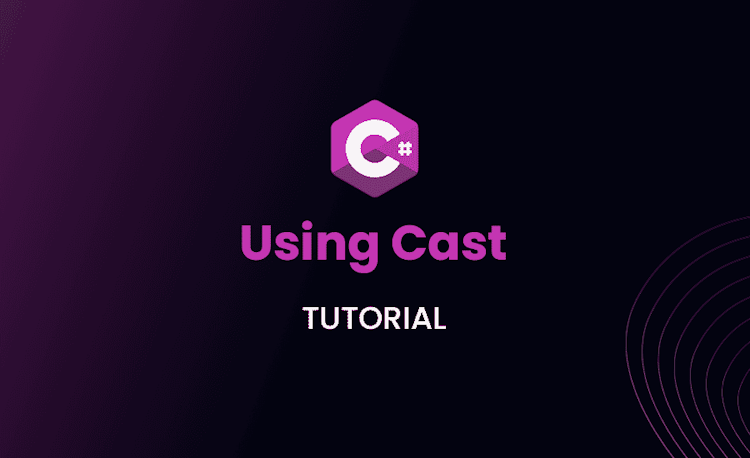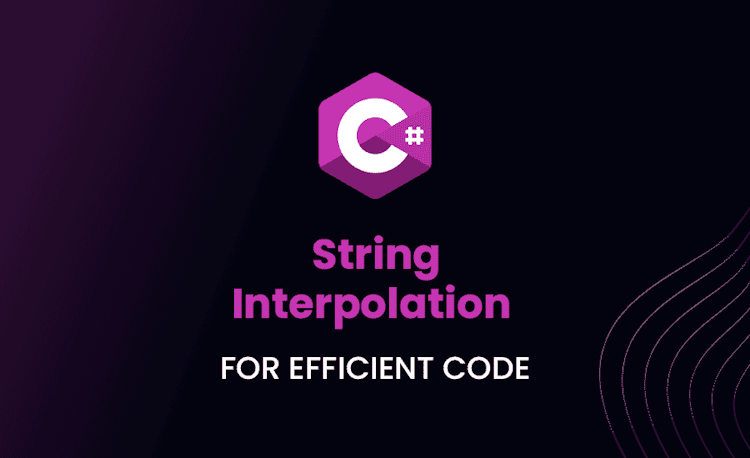C# Ternary Operator: How to Use it Effectively?

What is the C# Ternary Operator?
Can’t wait to simplify your coding life? Are you wondering what’s the secret to writing faster C# conditional logic? Alright, keep reading as we delve into all the nitty-gritty details of the C# Ternary Operator.
Definition and Usefulness of C# Ternary Operator
The C# Ternary Operator is quite emerging as a powerful, compact substitute for lengthy if-else statements. Comprising only three operands, it speeds up your coding process like a charm. Its syntax condition ? expr1 : expr2 means: if condition is true, expr1 is executed; otherwise, it’s expr2.
In other words, grab a cup of coffee and bid subtitles goodbye as we save lots of space on your screen, minus those endless lines of braces and parentheses!
Loading code snippet...
Imagine the beauty of this. With just a single line of code, we’ve executed an if-else statement! Fascinating, isn’t it?
Exploring The Syntax of C# Ternary Operator
Craving more? Here’s a closer look at the syntax of the C# Ternary Operator. You’d be astonished at the power this little operator holds.
How Does the C# Ternary Operator Work
Surprisingly, the ternary operator is an operator in C# that takes three operands (surprise)! It’s like the role of an efficient traffic policeman, controlling what gets prioritized depending on a particular condition (appointments, if you will).
Loading code snippet...
Above, our friendly ternary cop decides if it’s morning or afternoon based on the current time. Efficiency and simplicity, friends!
Dive Deep into the Practical Examples
Ready for the adventure? Here we go. Sit back, grab your cup of coffee, and enjoy the beauty of practical examples with the C# ternary operator!
Simple C# Ternary Operator Example
Check out this cool example that displays how the C# ternary operator can be used to decide a simple status message:
Loading code snippet...
Whoa! With a flick of a finger, you’ve got the system status. Pretty awesome, right?
Advanced C# Ternary Operator Multiple Statements Example
You might be thinking, “Can we use more than one statement with a ternary operator?” Well, here’s an exciting twist! The C# ternary operator does also support multiple statements. However, the catch is, you’ll need to use a workaround using Lambda methods. Let’s take a peek:
Loading code snippet...
Here, we’re invoking immediate functions depending on our condition. Interesting, huh? Just goes to show, there’s always a way!
Streamlining Code with C# Ternary Operator
Lost in a maze of if-else? Fear not! As we’re about to swing the door wide open with the magic of the C# ternary operator. Let’s dig deeper!
Talking about C# If Ternary Operator
So, you’re probably wondering how you can achieve a more succinct conditional without those nested braces. Only if there were a shorter way… oh, wait! There is, and it’s called the C# If ternary operator.
Loading code snippet...
So, instead of writing several lines for if-else, you’ve simply used a one-line ternary operator. How’s that for efficiency?
Convert If Else to Ternary Operator C#
Imagine a world free from lengthy and messy if-else codes? That’s not too difficult. You’re about to witness the magic of converting lengthy if-else to sleek one-liner ternary operators in C#.
Loading code snippet...
The magic is real! In a single line, we’ve determined the state of water depending on the temperature.
Ternary Operator Assignments
How about assigning values with the ternary operator? Don’t worry; C# has got this covered as well!
Understanding C# Ternary Operator Without Assignment
Normally, you would see a ternary operator along with an assignment. But what if you wanted to certainly perform actions without assigning a value to any variable? Fret not, the C# ternary operator is flexible enough to allow that!
Loading code snippet...
See? No assignments, yet actions were performed based on our condition!
Working with Null and Else in C# Ternary Operator
Do you wonder how to efficiently bypass Null and Else while working with ternary operators? Well, this is just the right place for you.
C# Ternary Operator Null Use Cases
What happens when you assign null values using a ternary operator? Let’s find out!
Loading code snippet...
This code can help in checks to prevent NullReference exceptions, making your app more robust. Impressive, no?
Ways to Implement C# Ternary Operator Without Else
Ternary without Else, you say? Absolutely! You can use a ternary operator without explicitly specifying the Else part, and C# will automatically insert a default else clause returning the default value of the data type.
Loading code snippet...
Super amazing, right? Only in C#, folks!
How to Work with Multiple Ternary Operator C#?
Handling multiple conditions can sometimes feel like juggling flaming torches. It’s hot stuff, and mistakes can be messy! However, the C# ternary operator is here to help. With its syntax, we can elegantly handle complex condition checking, turning flaming torch juggling into a gentle cascade of lit matchsticks.
Perfectly timed to catch each one safely, have a look at this simple arrangement:
Loading code snippet...
In this snippet, we’re checking the age categories. But we can extend this to incorporate more complex logic, perhaps involving database queries or calculations.
Let’s consider a real-life application: grading students based on score ranges.
Loading code snippet...
In this example, the student’s grade is being determined based on their score. If the score is above 85, the student earns an A. Otherwise, the code checks if it’s above 75 for a B, then above 65 for a C, and so on. If all these conditions are false, it implies the student has failed, hence the F grade is assigned.
It’s kind of like going through a checklist: checking conditions in order, from top to bottom, until one condition fits. This sequence of checks by the ternary operator makes multiple condition handling a breeze.
Let’s take it up another notch! Now, how about assigning priorities to tasks based on both their importance and urgency?
Loading code snippet...
In this scenario, if both importance and urgency score above 7, the task has a high priority. If either of them scores above 5, it is of medium priority. If neither condition is met, the task is low priority.
Using Ternary Operator to Increase the Performance and Readability of Your Code
By now, you’d probably be nodding in agreement that the Ternary Operator in C# is a compact, efficient and sensible alternative to traditional conditional statements like if-else.
Above all, always remember, just like their favorite superhero, every developer has a superpower: the ability to simplify and enhance the reader’s understanding. Apply these techniques, and bring your code to life! Happy Coding!





